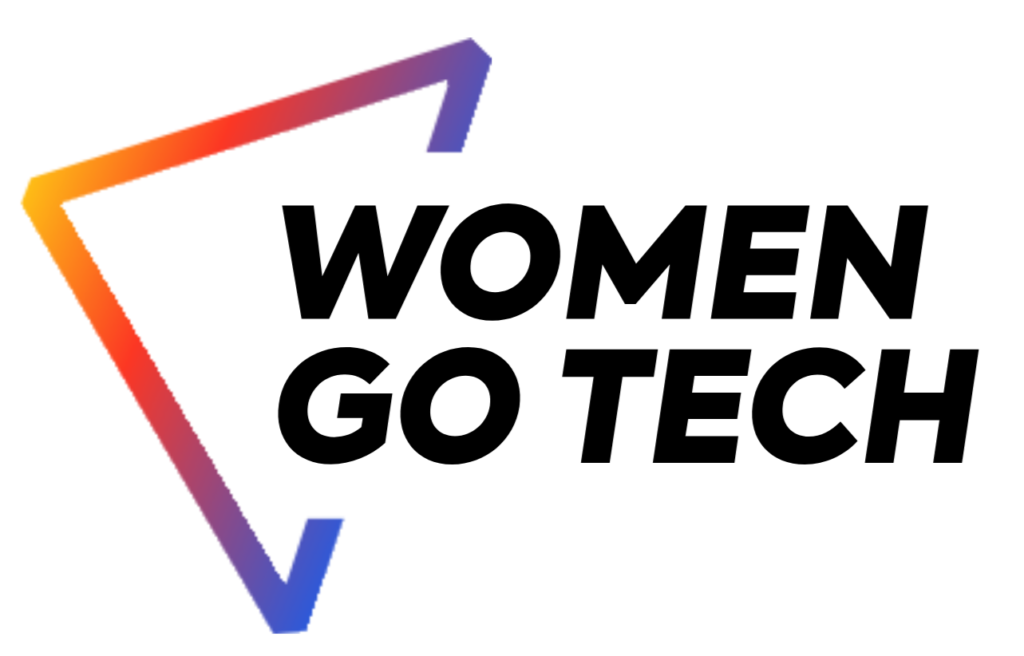|
Getting your Trinity Audio player ready…
|
Exciting news: the upcoming Women Go Tech season will offer cybersecurity as a brand new career track. This particular tech area has received a lot of interest in recent years, and it comes not only from experienced IT professionals but also people who aim to change their career path or even apply their non-tech skills to a quickly-growing area. However, cybersecurity is still a bit unexplored: it may be hard to imagine the range of responsibilities, most common challenges or even any necessary background to become the next superstar of this field.
To find out more, we spoke to Inga Žukauskienė, the coordinator of Women4Cyber branch of Lithuania. Women4Cyber is a non-profit European private foundation with the objective to promote, encourage and support the participation of women in the field of cybersecurity.

First of all, Inga, how and why did you become interested in tech?
Having spent 20 years in diplomatic service, I wanted to try something new and unexplored. Therefore, I started learning how to code: it seemed as a very interesting area holding great prospects too. But eventually I realised that pure coding and traditional IT tasks weren’t for me. Speaking shortly, my personal traits didn’t fit the nature of this job. However, I felt that exploring tech would lead me somewhere eventually. I was so lucky to find my mentors who helped me to discover project management. At the same time, I decided to focus on IT projects and see what I could do there.
“ The extensive experience in public institutions and specifically in international affairs encouraged me to dig deeper into tech at the state level.”
And how did it shift to cybersecurity eventually?
It could be related to my past experience. The extensive experience in public institutions and specifically in international affairs encouraged me to dig deeper into tech at the state level. Cybersecurity seemed like a great option as it combined both policy and tech. Moreover, at the same time Lithuania had a massive wave of tech progress in technology frameworks and businesses launching there – so it was a great period to enter this field. I started my cybersecurity career in the Ministry of National Defence, so my public service skills became really valuable there.
“ People from many different fields are really in demand: from lawyers or audit specialists to IT professionals, basically anyone can find their place in cybersecurity.”
What skills do you need to be successful in cybersecurity?
It’s a very wide area, so there isn’t a single definition. People from many different fields are really in demand: from lawyers or audit specialists to IT professionals, basically anyone can find their place in cybersecurity. After all, this industry is growing quickly and we’re all involved in it one way or another. Therefore, we need employees of different profiles to ensure smooth end-to-end processes.
When it comes to personality traits, it’s all about curiosity and willingness to learn. Along with this growth, many changes are coming regularly. You have to read, research, explore constantly – only this will help to keep up with the latest trends. Even if you’re already working, it’s good to refresh your skill set in various courses, webinars, etc. Also, discipline, organisation skills and flexible thinking are important there. Many cybercrimes are quite sophisticated these days, so seeing a big picture is basically a must.
“ As we moved to remote working and larger digital consumption in general at the start of COVID-19, efficient and tangible solutions were a priority.”
You mentioned cybercrimes. What are the biggest challenges in cybersecurity these days?
The range of these challenges is so wide that it’s probably impossible to distinguish only one thing! As we moved to remote working and larger digital consumption in general at the start of COVID-19, efficient and tangible solutions were a priority. However, many security issues followed up, and cybersecurity specialists had to solve them quickly because cybercriminals took advantage of it.
Data protection makes a large part of it, and this should be tackled at different levels. For instance, when considering individuals, children should be prioritised. They aren’t aware of many dangers around the virtual space, so extra protection measures have to be implemented to ensure fully safe experiences. Business and state levels are no less important, especially given the fact that technology is becoming more and more complex. It’s often difficult to detect who exactly committed a cybercrime. Also, such concepts as deep fake are more and more relevant – many phishing and hacking cases seem so genuine, so we have to prevent them through quality solutions and increasing awareness.
“ First, we need to stop segmenting”
What is the situation of female professionals in cybersecurity and tech in general? What steps should we take to attract more women to work there?
First and foremost, we need to stop segmenting. A few years ago, I had to face many negative opinions on the human resources gap in tech: there were people claiming that it shouldn’t be filled by women employees only. We couldn’t imagine this nowadays, and I keep saying that we can’t afford rejecting half of the workforce.
Female inclusion in tech should start from very early days. Many girls are experiencing extra pressure at home or at school, especially when they’re underperforming. This isn’t healthy for self-confidence and unleashing true abilities. So I believe that teachers and parents have to play a massive role there – encourage and motivate young girls, especially if they’re demonstrating interest towards tech or quantitative science.
